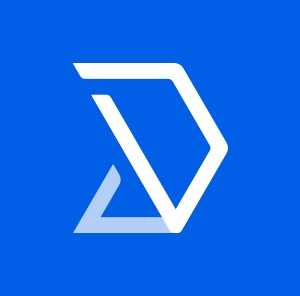Description

Skedda
Aghreni Mobille Tracker
Comprehensive Overview: Skedda vs Aghreni Mobille Tracker
Skedda
a) Primary Functions and Target Markets:
-
Primary Functions: Skedda is a booking and scheduling platform primarily designed for space management. It allows users to manage reservations for spaces such as meeting rooms, offices, sports facilities, and more. It offers features like online bookings, customizable booking rules, automated scheduling, integrations with calendar apps, and a user-friendly interface for both administrators and end-users.
-
Target Markets: Skedda targets businesses and organizations that need to manage shared spaces efficiently. Its target markets include coworking spaces, educational institutions, sports and recreation centers, corporate environments, and community centers.
b) Market Share and User Base:
- Skedda competes in the market for scheduling and booking software. While specific data on market share might not be publicly disclosed, Skedda is well-regarded among small to medium-sized businesses and organizations needing a straightforward solution to space management. Its user base is diverse, ranging across multiple industries that require efficient scheduling solutions for shared spaces.
c) Key Differentiating Factors:
-
User-Friendly Interface: Skedda is praised for its intuitive design that simplifies the booking process for both administrators and users.
-
Customization and Flexibility: Users can enforce customized booking rules and configurations that meet specific organizational needs.
-
Focus on Space Management: Unlike platforms that offer general scheduling, Skedda specifically targets the efficient utilization of physical spaces.
Aghreni Mobile Tracker
a) Primary Functions and Target Markets:
-
Primary Functions: Aghreni Mobile Tracker is a mobile-based tracking system that primarily focuses on tracking mobile device activities. It offers features such as real-time location tracking, call and text monitoring, internet usage monitoring, and reporting tools.
-
Target Markets: The tool is primarily targeted at businesses looking to manage and monitor employee activities (especially in fieldwork environments) and concerned parents aiming to keep track of their children’s mobile usage for safety purposes.
b) Market Share and User Base:
- The market share for Aghreni Mobile Tracker is part of the niche market for mobile tracking software. It has a specific user base that includes businesses with field operations needing employee tracking solutions and individuals who desire detailed oversight over mobile activities, often for security or parental reasons.
c) Key Differentiating Factors:
-
Mobile-Focused Tracking: Aghreni Mobile Tracker specializes in monitoring mobile device activities, setting it apart from broader tracking systems that include a range of devices or asset tracking.
-
Real-Time Monitoring: The system provides real-time updates, which is crucial for businesses requiring up-to-the-minute information on employee location and activities.
-
Privacy and Security Measures: As it deals with sensitive data, Aghreni is built with robust privacy and security measures to ensure data protection.
Comparison
-
Overall Focus: Skedda focuses on space management and scheduling, whereas Aghreni Mobile Tracker is centered on mobile device activity monitoring.
-
Use Cases: Skedda serves organizations needing efficient space utilization, while Aghreni satisfies needs around mobile activity oversight.
-
Target Users: Skedda's users range from businesses with shared spaces to educational institutions, while Aghreni's users are businesses with field operations and concerned parents.
Despite differing markets and functions, both systems aim to provide efficient, user-friendly solutions tailored to their respective niches.
Contact Info

Year founded :
2013
Not Available
Not Available
United States
http://www.linkedin.com/company/skedda
Year founded :
Not Available
Not Available
Not Available
Not Available
Not Available
Feature Similarity Breakdown: Skedda, Aghreni Mobille Tracker
When comparing Skedda and Aghreni Mobile Tracker, it's important to note that these are two distinct applications with different primary functions. Skedda is primarily a space and scheduling management platform, while Aghreni Mobile Tracker tends to focus on mobile tracking and possibly location-based services. However, let's break down their features in terms of commonalities, user interfaces, and unique features:
a) Core Features in Common
While these applications serve different primary purposes, they may share some generic core features typically found in modern software solutions:
-
User Management: Both platforms likely offer user management features, allowing for the creation and management of user accounts and roles.
-
Reporting/Analytics: These applications often come with reporting or analytics capabilities, allowing users to generate reports based on the data collected through the platform.
-
Notifications/Alerts: Common across platforms for keeping users updated on important events or activities.
-
Mobile Accessibility: Both Skedda and a mobile tracking application would likely offer mobile-optimized interfaces or apps, considering the importance of mobile access in today’s tech landscape.
b) User Interface Comparison
-
Skedda:
- Design: Typically, Skedda features a clean and modern interface focusing on calendar views and booking interfaces.
- User Experience: Emphasizes the ease of booking and managing spaces, often with drag-and-drop functionality and visual calendar integration.
-
Aghreni Mobile Tracker:
- Design: Likely to have a more data-centric interface with emphasis on maps, dashboards showing mobile traces, and tracking statistics.
- User Experience: Focused on live tracking, providing insights into location data, and possibly alert settings, with an interface structured around map views and data points.
Skedda's UI is more likely to target efficient scheduling and management of spaces, whereas a mobile tracker would position its UI towards showing location data and analytics.
c) Unique Features
Skedda:
- Space Management: Unique focus on booking and managing physical spaces like rooms or facilities.
- Customization Options: Offers features to customize booking rules and user permissions, focusing on space utilization.
- Integrations: Likely to have integrations with calendar systems like Google Calendar and Outlook for seamless booking experiences.
Aghreni Mobile Tracker:
- Location-Based Services: Stronger suite for location tracking, geo-fencing, and possibly live monitoring of mobile devices.
- Device Tracking: Experience in tracking and possibly managing multiple devices in real-time.
- Location Alerts: Advanced settings for location-based alerts and notifications based on predefined areas or rules.
In summary, while there may be some overlap in the very basic features associated with software platforms (like user management), the primary functions of these applications are quite distinct. Skedda focuses on efficient space management and booking, while Aghreni Mobile Tracker is more focused on providing tools for location tracking and analytics.
Features

Simple Scheduling
Detailed Reporting
Flexible Rules and Permissions
Payment Integration
Not Available
Best Fit Use Cases: Skedda, Aghreni Mobille Tracker
Skedda
a) Best Fit Use Cases for Skedda
Skedda is primarily designed as a space booking and scheduling platform, making it an excellent choice for businesses or projects that require efficient scheduling and allocation of spaces. The key uses include:
- Coworking Spaces: Ideal for managing bookings of desks, meeting rooms, and other shared workspaces.
- Sports Facilities: Useful for scheduling courts, fields, or gym facilities, accommodating multiple users and recurring bookings.
- Studios and Galleries: For art studios, galleries, or photography spaces needing organized scheduling systems.
- Educational Institutions: For booking classrooms, laboratories, or seminar halls by schools and universities.
- Community Centers and Clubs: Suitable for any community organization that offers shared space facilities to its members.
Aghreni Mobille Tracker
b) Preferred Scenarios for Aghreni Mobille Tracker
Aghreni Mobille Tracker is more aligned with location-based tracking and analytics, making it ideal for:
- Field Sales and Service Management: Companies needing to track the location and productivity of sales or service teams in real-time.
- Logistics and Fleet Management: Businesses that want to optimize delivery routes and track the location of goods and vehicles.
- Event Management: Organizers who benefit from tracking attendee movements and engagement during large events.
- Retail Chains: Chains with a mobile workforce needing insights into store visit patterns and performance metrics.
- Emergency Services: For tracking and deploying emergency response teams effectively.
Industry Verticals and Company Sizes
c) How Skedda and Aghreni Mobille Tracker Cater to Various Industries
-
Skedda primarily caters to industries where physical space management is crucial. It's adjustable for businesses of various sizes but is especially adept in contexts where multiple users need to book and manage time slots in shared environments. It works well for small to medium-sized enterprises and institutions needing simple yet powerful scheduling tools.
-
Aghreni Mobille Tracker, on the other hand, serves more complex needs such as tracking, logistics, and real-time data analytics, which are vital across several industry verticals like logistics, retail, and field services. It suits mid to large-sized companies where the mobility of personnel or assets is central to operations, offering robust adaptability to scale with business needs.
Each tool provides tailored solutions to distinct operational challenges, catering to different organizational requirements based on the industries they serve.
Pricing

Pricing Not Available
Pricing Not Available
Metrics History
Metrics History
Comparing teamSize across companies
Conclusion & Final Verdict: Skedda vs Aghreni Mobille Tracker
When comparing Skedda and Aghreni Mobile Tracker, here's a comprehensive conclusion and final verdict:
a) Which Product Offers the Best Overall Value?
The determination of the best overall value between Skedda and Aghreni Mobile Tracker largely depends on the user's specific needs and priorities. Skedda is predominantly a space management and scheduling tool, ideal for organizations looking to optimize space usage. Aghreni Mobile Tracker, on the other hand, is a mobile tracking and marketing automation tool, more suited for businesses focusing on location-based services and mobile customer engagement.
For organizations primarily seeking an efficient, user-friendly platform to manage space bookings and schedules, Skedda offers excellent value. Conversely, for businesses looking to enhance mobile marketing strategies or track mobile engagement, Aghreni Mobile Tracker provides more value.
b) Pros and Cons of Choosing Each Product
Skedda
Pros:
- User-Friendly Interface: Intuitive design facilitates easy booking and scheduling.
- Customizable Features: Offers various customization options to meet specific organizational needs.
- Integration Capabilities: Supports integration with calendar apps and other third-party tools, enhancing utility.
- Focus on Space Management: Specialized in managing different types of spaces, from offices to recreational facilities.
Cons:
- Limited to Scheduling: Mainly focused on space management, limiting its application for wider business needs beyond scheduling.
- Might Not Suit Large Enterprises: May not offer extensive data analytics or management features required by larger organizations.
Aghreni Mobile Tracker
Pros:
- Comprehensive Mobile Analytics: Offers robust tracking of mobile user engagement and behavior.
- Marketing Automation: Includes features for automated marketing campaigns and customer segmentation.
- Geolocation Features: Provides location-based services which are beneficial for targeted marketing.
- Data-Driven Insights: Facilitates informed decision-making with advanced analytics.
Cons:
- Complexity: May have a steeper learning curve due to its extensive features and capabilities.
- Niche Application: Primarily focused on mobile tracking and marketing, which may not cater to all business needs.
- Dependence on Mobile Use: Provides limited value to organizations where mobile engagement is not a primary concern.
c) Recommendations for Users Deciding Between Skedda and Aghreni Mobile Tracker
-
Identify Core Needs: Users should evaluate what they need the most: space management and scheduling, or mobile engagement and tracking. This core need will help in selecting the more suitable product.
-
Consider Scalability: If scalability and integration with other business processes are essential, Skedda might be favorable for those focused on space management, whereas Aghreni is better suited for expanding mobile marketing capabilities.
-
Ease of Use vs. Functionality: Opt for Skedda if ease of use and quick deployment are the priorities. Choose Aghreni if advanced marketing automation and detailed analytics are more critical.
-
Budget Considerations: Evaluate the budget against the spectrum of features offered by each tool. Sometimes, the best value isn't the cheapest option but what aligns better with achieving strategic goals.
Ultimately, the decision hinges on specific organizational priorities, whether it's optimizing resource scheduling or enhancing mobile marketing efforts.
Add to compare



